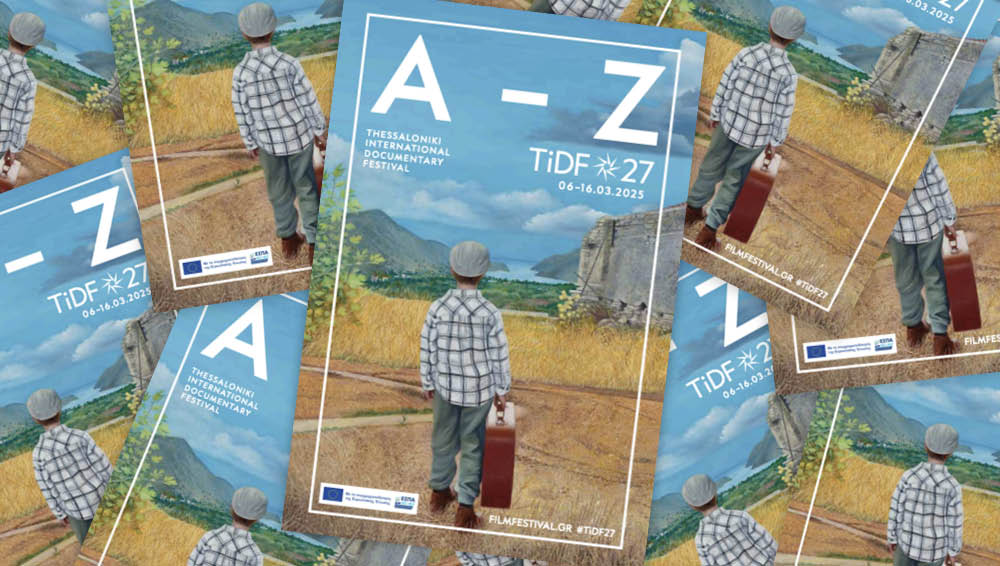56th THESSALONIKI INTERNATIONAL FILM FESTIVAL
November 6-15, 2015
The 3 films of the 2015 LUX Prize Official Competition
at the 56th TIFF
November 6-15, 2015
The 3 films of the 2015 LUX Prize Official Competition
at the 56th TIFF
For the fourth consecutive year, the audience of the 56th Thessaloniki International Film Festival will have the opportunity to watch the three films of the Official Competition of the 2015 LUX Prize, bestowed annually by the European Parliament. The films are: Mediterranea by Jonas Carpignano (Italy, France, USA, Germany, Qatar), Mustang by Deniz Gamze Erguven (France, Germany, Turkey) and The Lesson by Kristina Grozeva & Petar Valchanov (Bulgaria, Greece).
What is the LUX Prize?
Established in 2007, the LUX Prize is a film prize awarded each year by the European Parliament. The LUX Prize pursues two main objectives: spotlighting the public debate on Europe and supporting circulation of European co-productions within the Union. Indeed, distribution is “the Achilles’ heel” of European cinema, weakened by language barriers. The LUX Prize aims at overcoming them, by helping European films to reach a wider audience by supporting their subtitling and distribution. Through the LUX Prize, the European Parliament supports cultural diversity and helps building bridges among Europeans.
What are the LUX Film Days?
The LUX Film Days are the screenings of the 3 films of the LUX Prize Official Competition across all 28 European countries during the same period of time: autumn 2015. For the LUX Film Days, as part of the LUX Prize, the 3 films of the Competition are subtitled in the 24 official languages of the European Union. The aim is to share the diversity and richness of European cinema with the largest number of Europeans possible and to debate the topics depicted by the films of the LUX Prize 2015. The subjects raised by these films are common to all of us, they tell our stories, touch our emotions and address issues we all face.
How are the films selected?
The films are selected by a group of film industry professionals who form the Selection Panel. The 3 films of the Official Competition are the outcome of the Selection Panel’s choice. The laureate is decided and awarded by the Members of the European Parliament. This year, the prize will be awarded on November 25th.
What is the Audience Mention?
The Audience Mention is the people’s choice to elect their favourite LUX film. Viewers from all around Europe are invited to vote for one of the 3 films in competition by visiting the website www.luxprize.eu or Facebook page and express their point of view. The winner will receive the Audience Mention Award for the 2015 LUX Film Prize. Additionally, one of the voters will be chosen at random and rewarded with an invitation to the Karlovy Vary International Film Festival, where the winner of the Audience Mention will be announced.
THE FILMS
Mediterranea by Jonas Carpignano, Italy-France-USA-Germany-Qatar, 107’, 2015
Ayiva recently left his home in Burkina Faso in search of a way to provide for his sister and his daughter. He takes advantage of his position in an illegal smuggling operation to get himself and his best friend Abas off of the continent. Ayiva adapts to life in Italy, but when tensions with the local community rise, things become increasingly dangerous. Determined to make his new situation work he attempts to weather the storm, but it has its costs.
Mustang by Deniz Gamze Erguven, France-Germany-Turkey, 97’, 2015
Early summer. In a village in northern Turkey, Lale and her four sisters are walking home from school, playing innocently with some boys. The immorality of their play sets off a scandal that has unexpected consequences. The family home is progressively transformed into a prison; instruction in homemaking replaces school and marriages start being arranged. The five sisters who share a common passion for freedom, find ways of getting around the constraints imposed on them.
The Lesson / Urok by Kristina Grozeva & Petar Valchanov, Bulgaria-Greece, 110’, 2015
In a small Bulgarian town, Nadezhda, a young teacher, is looking for the robber in her class so she can teach them a lesson about right and wrong. But when she gets in debt to loan sharks, can she find the right way out her self? What makes a decent human being become a criminal?
















